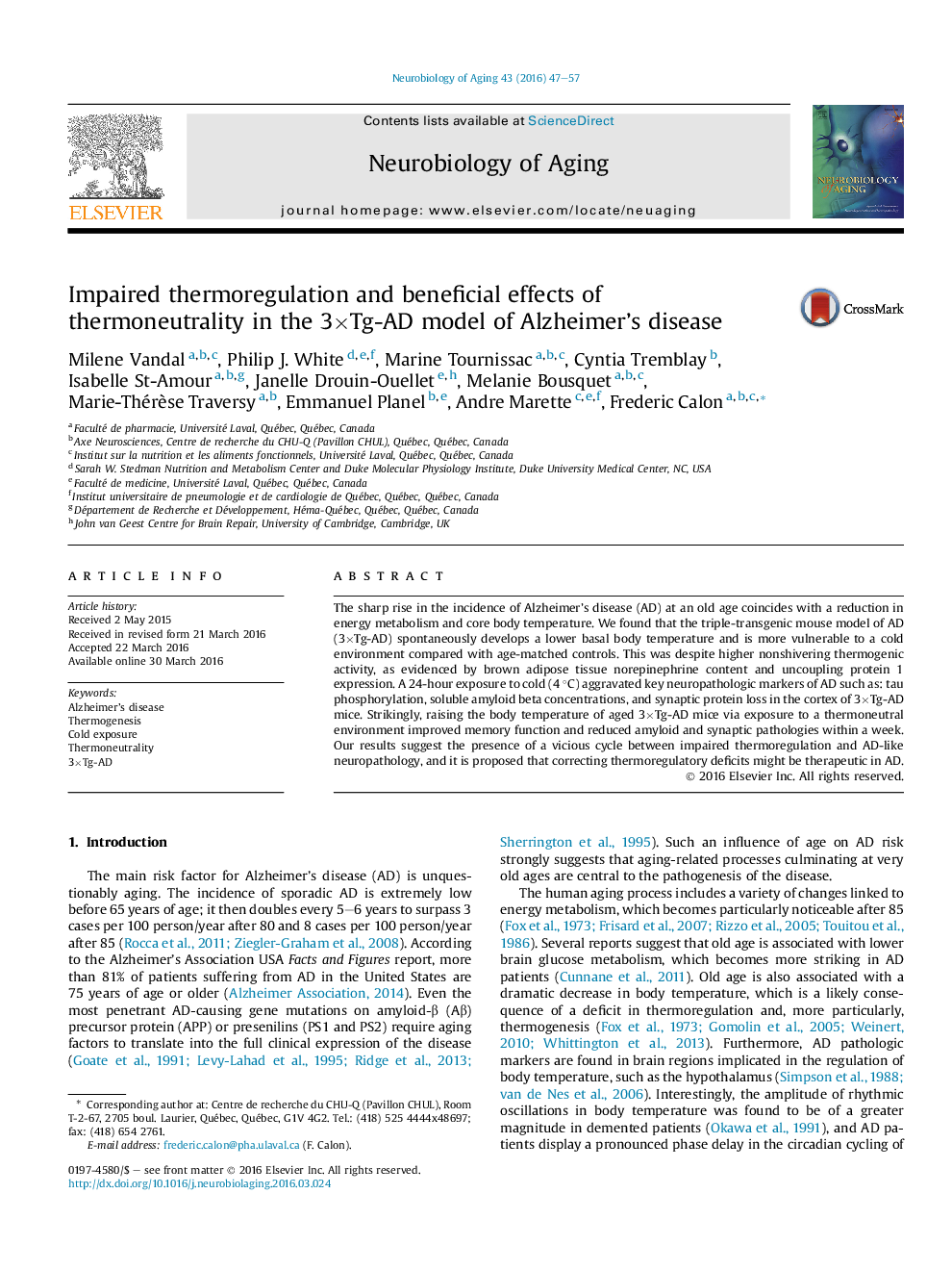| کد مقاله | کد نشریه | سال انتشار | مقاله انگلیسی | نسخه تمام متن |
|---|---|---|---|---|
| 330456 | 1433541 | 2016 | 11 صفحه PDF | دانلود رایگان |
The sharp rise in the incidence of Alzheimer's disease (AD) at an old age coincides with a reduction in energy metabolism and core body temperature. We found that the triple-transgenic mouse model of AD (3×Tg-AD) spontaneously develops a lower basal body temperature and is more vulnerable to a cold environment compared with age-matched controls. This was despite higher nonshivering thermogenic activity, as evidenced by brown adipose tissue norepinephrine content and uncoupling protein 1 expression. A 24-hour exposure to cold (4 °C) aggravated key neuropathologic markers of AD such as: tau phosphorylation, soluble amyloid beta concentrations, and synaptic protein loss in the cortex of 3×Tg-AD mice. Strikingly, raising the body temperature of aged 3×Tg-AD mice via exposure to a thermoneutral environment improved memory function and reduced amyloid and synaptic pathologies within a week. Our results suggest the presence of a vicious cycle between impaired thermoregulation and AD-like neuropathology, and it is proposed that correcting thermoregulatory deficits might be therapeutic in AD.
Journal: Neurobiology of Aging - Volume 43, July 2016, Pages 47–57
